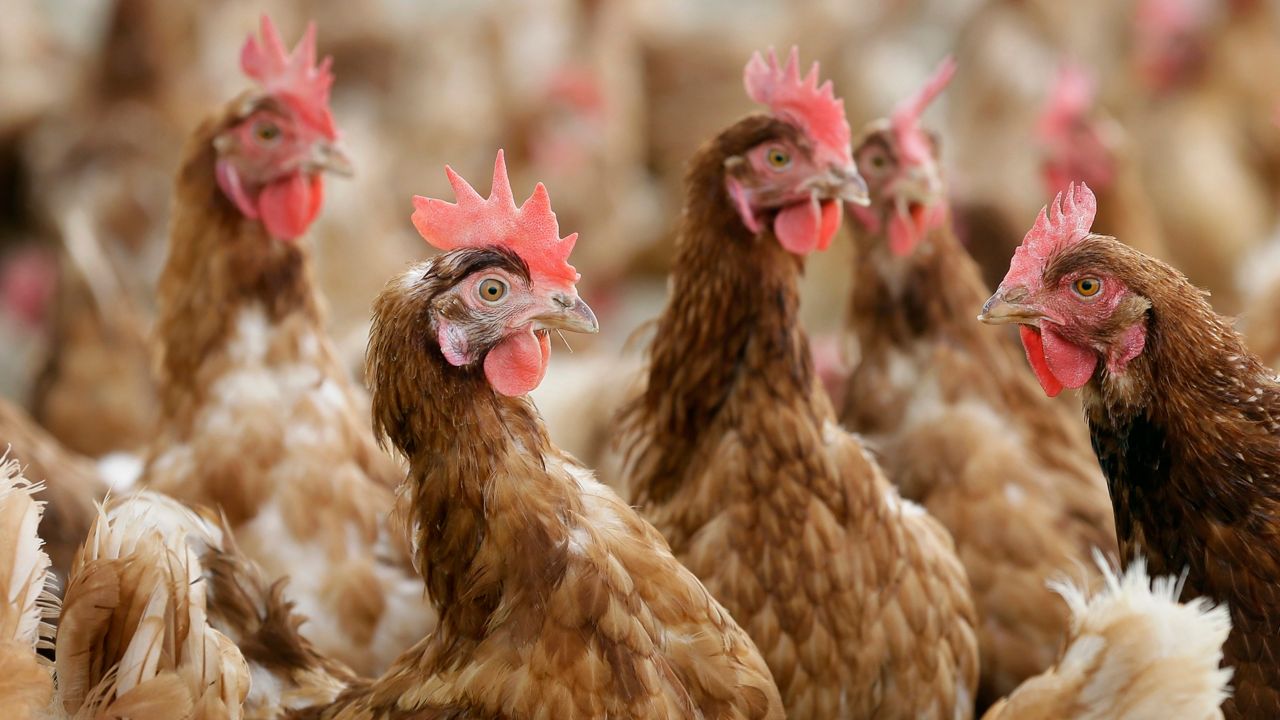MILWAUKEE — A case of a highly contagious bird flu has been confirmed in Wisconsin for the first time in years, officials announced Monday.
Highly pathogenic avian influenza, or HPAI, is very contagious and often fatal for birds. The disease has now been detected in a bird from a commercial poultry flock in Jefferson County, according to a news release from the Wisconsin Department of Agriculture, Trade and Consumer Protection.
“We’re doing everything we can to respond as rapidly as possible,” DATCP Secretary Randy Romanski said at a media briefing Monday.
The disease was identified at a commercial egg-laying facility with nearly 3 million birds, Wisconsin State Veterinarian Darlene Konkle said at the briefing. The rest of those chickens will be culled and disposed of without entering the food system, she said.
Officials are closely monitoring other flocks in the area, including some that are managed by the same farm owner, Konkle said.
“Our main objective is to prevent the spread of this virus, either to other wild birds or to other domestic birds,” Konkle said.
Samples from the flock were tested by the Wisconsin Veterinary Diagnostic Laboratory and confirmed by the National Veterinary Services Laboratories in Ames, Iowa, according to the DATCP release.
This marks the first HPAI case in the state since 2015, which Konkle said was “a different virus but a similar situation.” That year, outbreaks spread to 10 flocks in Wisconsin, she said, including turkeys, egg-laying chickens and a backyard flock.
Other HPAI outbreaks have shown up in several U.S. states in recent weeks, including Indiana, Iowa and Illinois, according to the U.S. Department of Agriculture.
Konkle said officials believe the virus found in Wisconsin is the same strain as in these other outbreaks, but are waiting for genetic sequencing to confirm.
This particular virus was first detected in the U.S. in wild birds during the holiday season, Konkle said. Because it is new, officials are still learning all the specifics, she said, but the strain appears to be highly contagious and seems likely to affect poultry and other waterfowl.
As for people, though, state and federal officials said this virus doesn’t appear to pose a public health threat. No humans have ever been detected with HPAI in the U.S., according to the CDC.
“Currently we are not seeing any human health impacts from this virus, which is good news,” Konkle said.
In the wake of this detected case, animal health officials stressed the importance of biosecurity measures for those who work with birds — including preventing flocks from coming in contact with wild birds and reporting any sick birds or unusual deaths.



